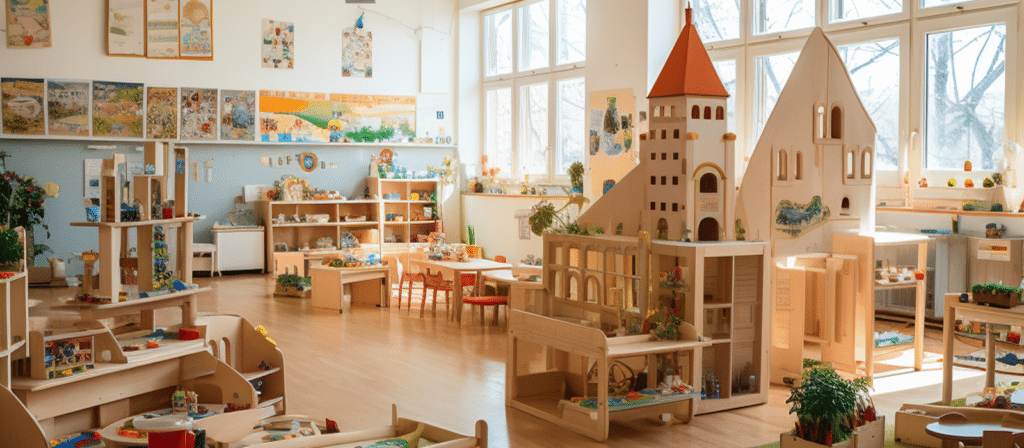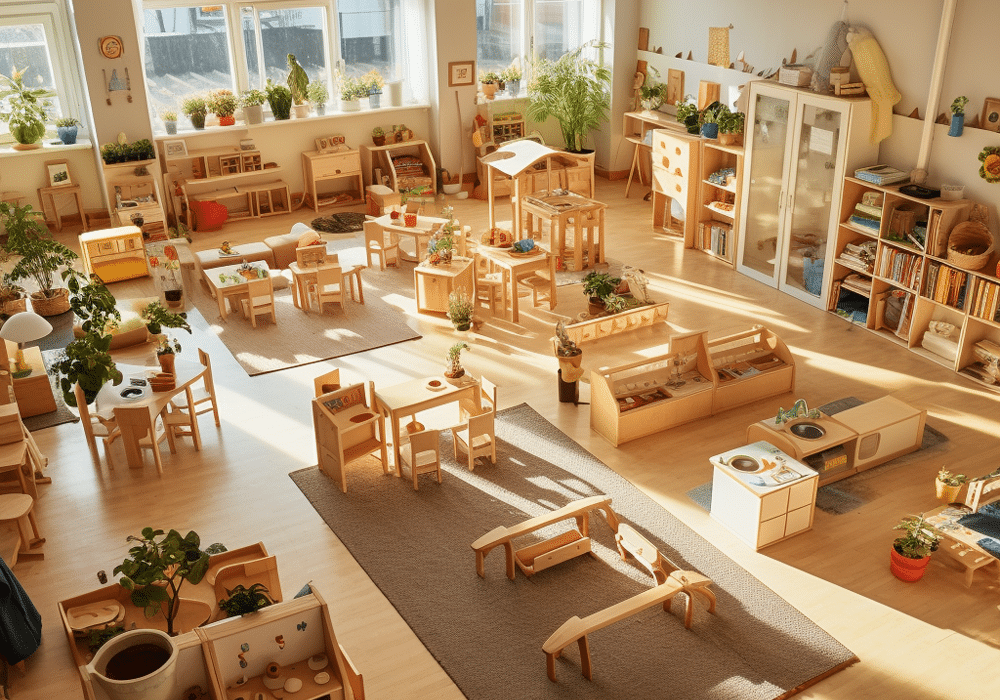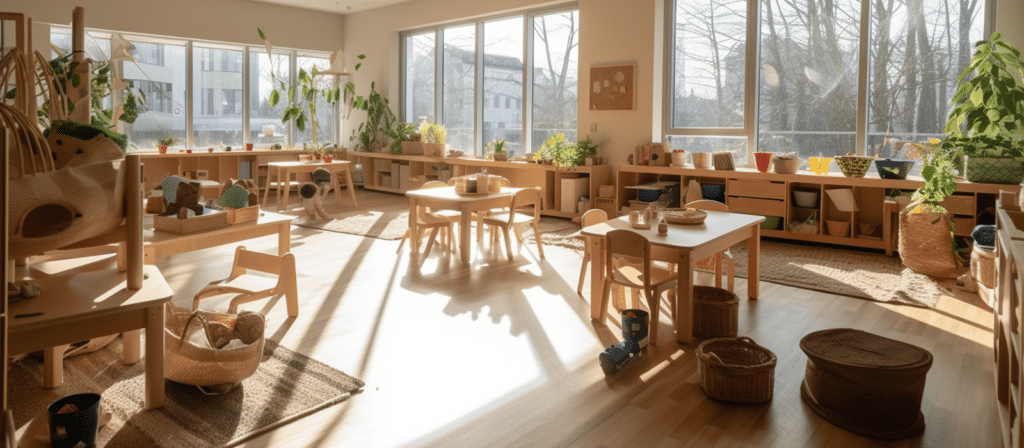Are you searching for innovative ways to engage elementary students in the fascinating world of science? Discover how Montessori furniture can revolutionize the learning experience by providing a conducive environment for hands-on science exploration. In this article, we’ll delve into the essential role of Montessori furniture in elementary science education.
Montessori Furniture for Elementary Science Exploration is a powerful tool that transforms traditional classrooms into dynamic laboratories of discovery. It fosters curiosity, critical thinking, and a lifelong love for science by providing students with furniture designed to support their scientific endeavors.
What is Montessori furniture and how does it differ from traditional classroom furniture?
Montessori furniture is specifically designed to cater to the needs and developmental stages of children. Unlike traditional classroom furniture that is often standardized and rigid, Montessori furniture is flexible, adjustable, and encourages independent exploration. It is crafted with the child’s physical and cognitive development in mind, allowing them to engage in active learning and discovery.

Why is Montessori Furniture Essential for Elementary Science Exploration?
Montessori education is centered around the belief that children learn best through hands-on experiences and by actively engaging with their environment. This philosophy applies perfectly to the field of science. By providing children with specially designed furniture that supports their scientific endeavors, we can create an environment that encourages exploration, experimentation, and discovery.
One of our flagship products, the Beechair Science Table, is designed to facilitate collaborative scientific investigations. With its adjustable height feature and ample workspace, children can comfortably conduct experiments, observe specimens, and record their findings. The ergonomic design ensures that children can focus on their scientific inquiries without any physical discomfort or distractions.
What are the key features of Montessori furniture for elementary science exploration?
- Flexible Workstations: Montessori furniture offers flexible workstations that can be easily rearranged to accommodate different experiments or activities. This adaptability encourages children to take ownership of their learning environment and allows for seamless transitions between different science exploration areas.
- Open Shelves and Storage: Montessori furniture often incorporates open shelves and storage units, providing easy access to science materials, tools, and equipment. This promotes organization and independence, as children can retrieve and return items on their own. It also facilitates the development of important organizational skills, a crucial aspect of scientific inquiry.
- Natural Materials: Montessori furniture is typically crafted from natural materials such as wood, promoting a connection with nature and a sustainable mindset. The use of natural materials also adds a touch of warmth and beauty to the learning environment, creating a welcoming and inspiring space for scientific exploration.
- Child-Sized Furniture: Montessori furniture is designed with the child’s size and comfort in mind. Child-sized tables, chairs, and workstations promote independence and empower children to take control of their learning. This encourages a sense of ownership and fosters a positive attitude towards scientific exploration.

How Does Montessori Furniture Enhance Science Learning?
Montessori furniture is carefully crafted to meet the unique needs of young learners. In the context of science exploration, our furniture offers several benefits:
- Promotes Independence: Montessori furniture is designed to be child-sized and easily accessible. This empowers children to take charge of their learning journey and encourages them to explore scientific concepts independently.
- Encourages Collaboration: Many of our Montessori furniture pieces, such as the Beechair Science Table, are designed to accommodate multiple children. This promotes collaboration, teamwork, and the sharing of ideas, which are crucial skills in the scientific community.
- Organizes Materials: Montessori furniture often includes built-in storage compartments and shelves, allowing children to organize their scientific materials and equipment. This fosters a sense of order and responsibility while also making it easier for children to locate and access the resources they need for their experiments.
- Supports Observation and Documentation: Montessori furniture provides dedicated spaces for children to observe and document their scientific findings. Whether it’s a magnifying glass stand or a writing surface, these features enable children to record their observations and reflect on their experiments, promoting critical thinking and the development of scientific inquiry skills.
What Resources Can Montessori Furniture Provide for Elementary Science Exploration?
Montessori furniture can be a valuable resource for a wide range of science exploration activities. Here are some examples:
- Microscope Station: Equipped with a sturdy microscope stand and storage space for slides and specimens, a dedicated microscope station can fuel children’s curiosity about the microscopic world. They can examine various specimens, such as plant cells or insect parts, and develop a deeper understanding of biological structures.
- Nature Observation Area: By creating a designated area with comfortable seating and observation tools like binoculars and magnifying glasses, children can engage in nature observation. They can study bird behavior, identify different plant species, and learn about the interconnections in the natural world.
- Experimentation Zone: Montessori furniture can provide a designated space for hands-on experiments. With features like water-resistant surfaces and built-in sinks, children can conduct chemistry experiments, explore the properties of different materials, and learn about the scientific method.
- Data Analysis Corner: Montessori furniture can also include a space for data analysis and graphing. Children can record their experiment results, create graphs to visualize data trends, and draw conclusions based on their observations. This helps them develop skills in data analysis and interpretation.

How can Montessori furniture be integrated into elementary science curricula?
Integrating Montessori furniture into elementary science curricula can greatly enhance the learning experience for students. By creating a conducive environment where children can freely explore and discover, Montessori furniture supports the development of scientific inquiry skills, such as observation, experimentation, and analysis. It also encourages collaboration and teamwork, as children can work together on projects and experiments.
What are the benefits of using Montessori furniture for elementary science exploration?
- Engagement and Motivation: Montessori furniture creates an engaging and stimulating learning environment, increasing children’s motivation to actively participate in science exploration. The hands-on nature of Montessori furniture encourages children to take charge of their learning, fostering a sense of curiosity and excitement.
- Critical Thinking and Problem-Solving: Montessori furniture promotes critical thinking and problem-solving skills by providing opportunities for children to formulate hypotheses, conduct experiments, and analyze results. The freedom to manipulate the environment and materials allows for open-ended exploration, fostering creativity and innovation.
- Independence and Responsibility: Montessori furniture empowers children to take responsibility for their learning. By providing easy access to materials and tools, children can independently explore scientific concepts, make their own discoveries, and learn from their mistakes. This cultivates a sense of independence and self-confidence.
- Long-Term Learning: Montessori furniture creates a positive and supportive learning environment that encourages a lifelong love for science. By fostering a hands-on and interactive approach to learning, Montessori furniture helps children develop a deep understanding of scientific concepts that extends beyond the classroom.
Conclusion
Montessori furniture provides a unique and effective solution for elementary science exploration. By creating a flexible and engaging learning environment, Montessori furniture supports the development of essential scientific inquiry skills while fostering independence, creativity, and a lifelong love for science.













